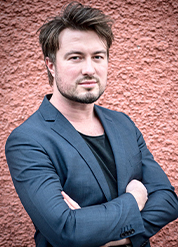Freedom to Research
Shifting Funding Regimes and their Effects on Early-Career Academics in the Social Sciences and Humanities
Prinsipal Investigator

Hampus Östh Gustafsson
Researcher
Uppsala University
Project period
2025 – 2027
Abstract
Threats to academic freedom have emerged globally and are increasingly cause for concern among scholars. Pivotal to any discussion about academic freedom is the role of research funding. Funding protects and sustains freedoms in the pursuit of knowledge creation (research) and dissemination (teaching). However, there is limited understanding of how variations in historically and geographically distinct funding regimes impact early-career academics, particularly in the Social Sciences and Humanities. This CAT Group addresses this question. The Group comprises sociologists and historians committed to advocating for a positive definition of academic freedom.
Our collective work spans France, Sweden, the UK, and South Africa, thus also offering a Global South perspective, and covers over five decades, from the 1970s to the present. Methodologically, we employ a broad empirical mix based on of archival research, interviews, expert focus groups, and statistical analyses of various data sources. Our overarching goal is to explore how funding regimes influence career trajectories and the freedoms of emerging scholars, while also examining how they adapt to or challenge constraints. Ultimately, we aim to: (i) contribute to and lead debates on the reevaluation of current funding models to promote more equitable and sustainable academic environments, (ii) inform policy discussions on responsible research assessment and funding, and (iii) propose strategies to enhance the autonomy and creative potential of early-career academics in the Social Sciences and Humanities.
Members
- Tobias Dalberg, Senior Lecturer, Uppsala University
- Audrey Harroche, Lecturer, Oxford Brooks Business School / Sciences Po
- François van Schalkwyk, Postdoctoral Research Fellow, Stellenbosch University
- Marie-Gabrielle Verbergt, Postdoctoral Research Fellow, Ghent University
Hosting Institutions
- Paris Institute for Advanced Study (IAS Paris)
- Swedish Collegium for Advanced Study (SCAS)
- Zukunftskolleg Konstanz
- Freiburg Institute for Advanced Studies (FRIAS)
- Centre for Advanced Study (CAS) at The Norwegian Academy of Science and Letters